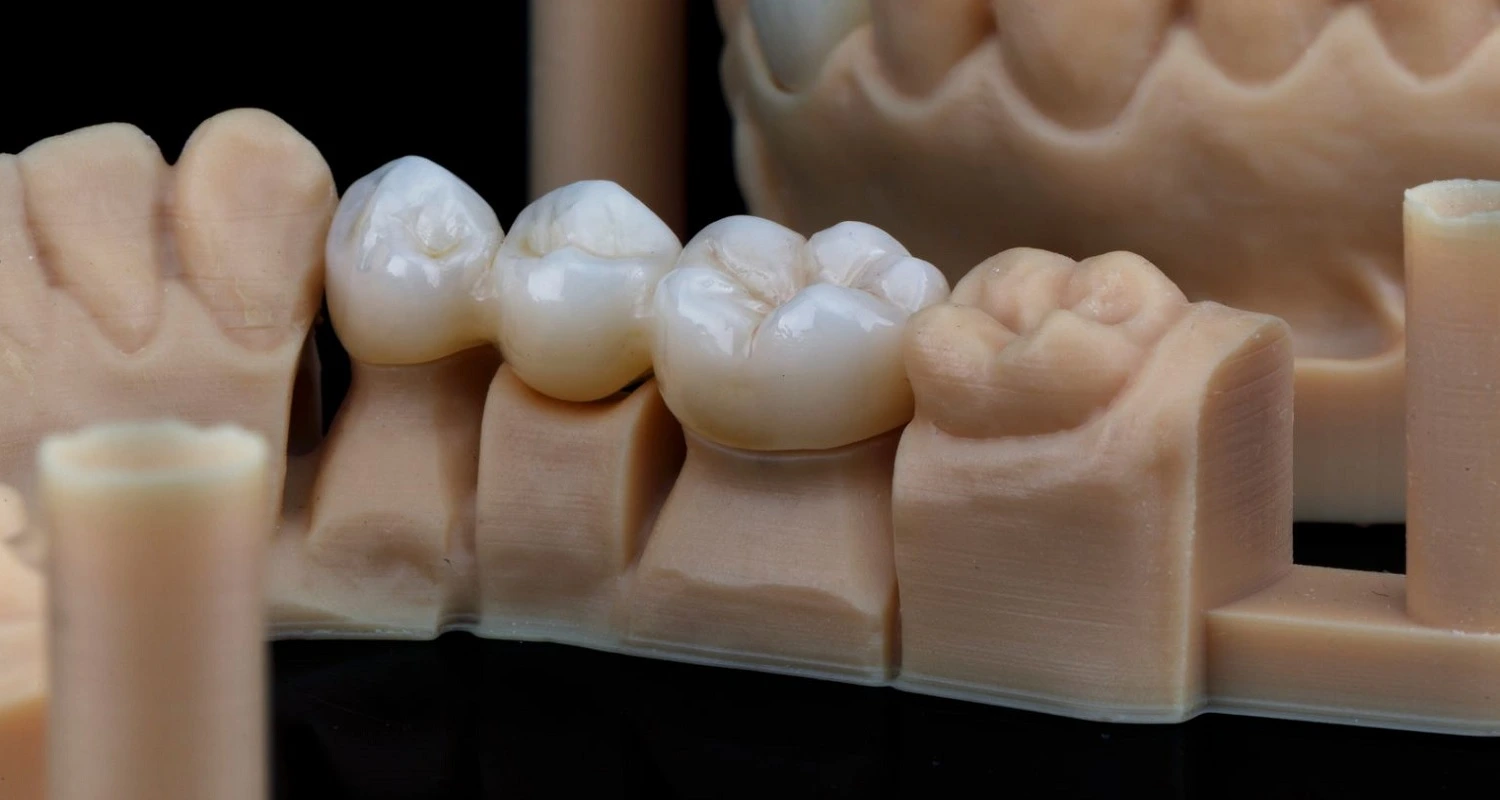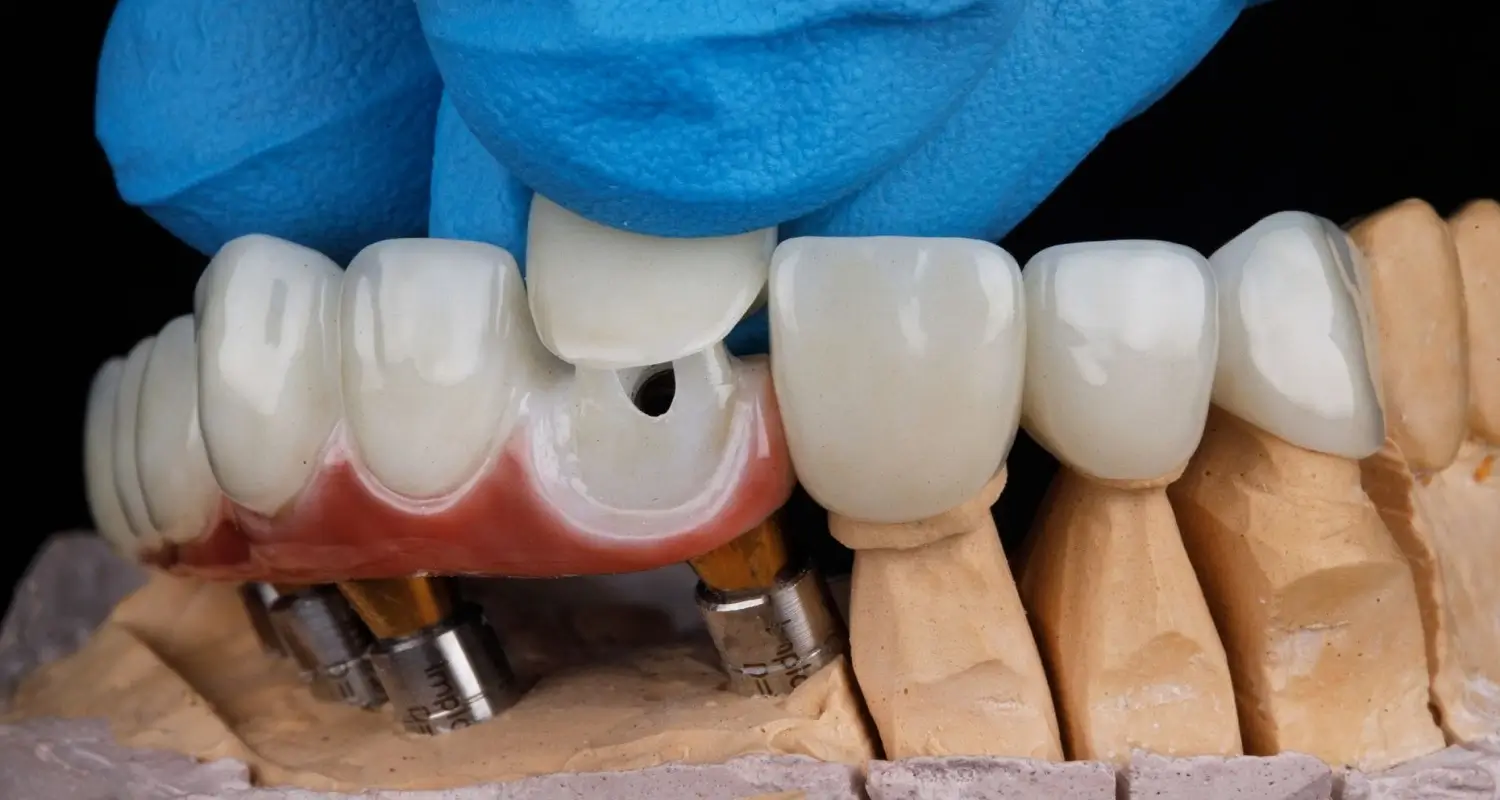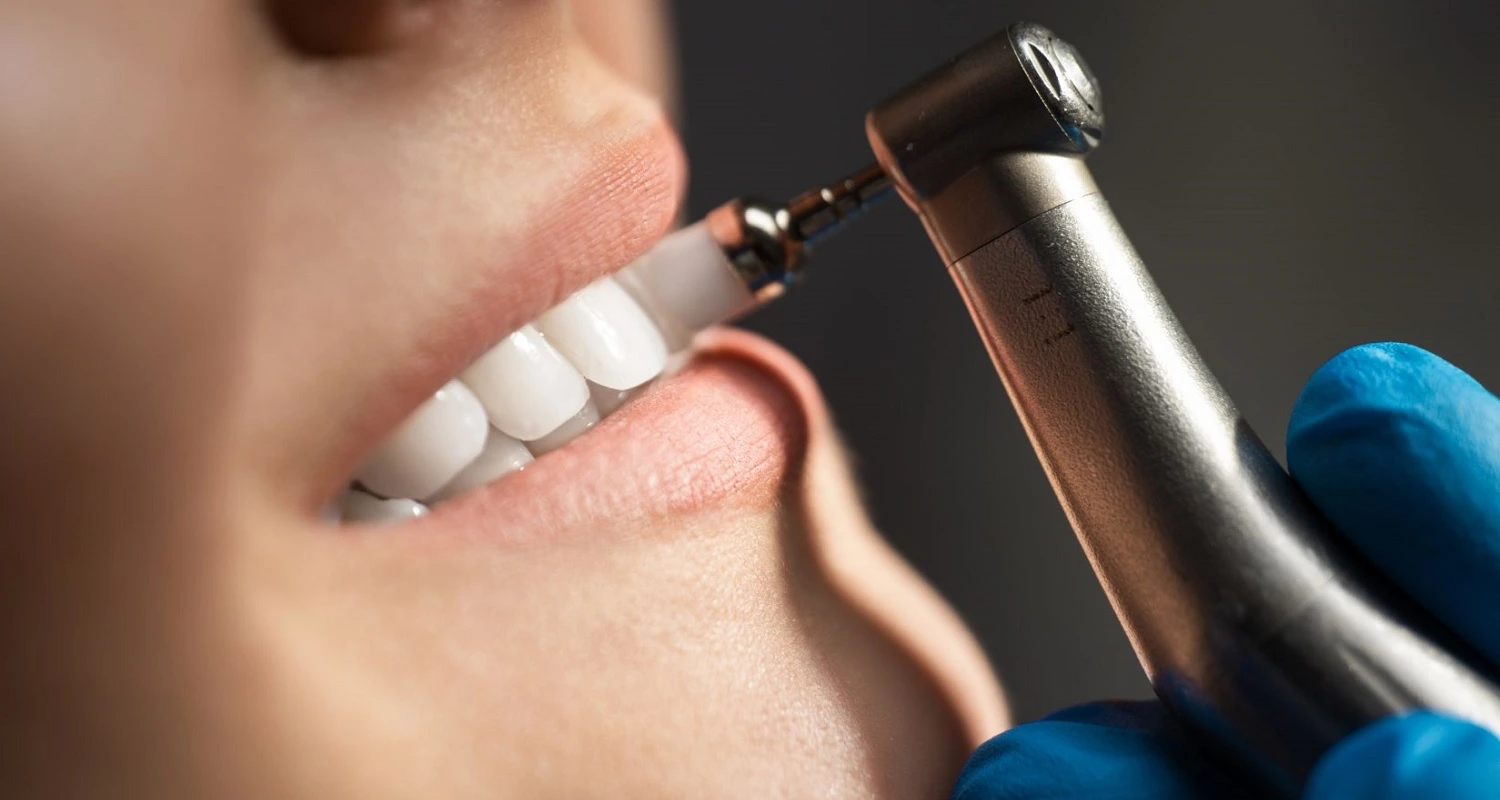✓ Fact Checked 🕓
❙ Our team of writers, editors, and medical experts rigorously evaluates each article to ensure the information is accurate and exclusively cites reputable sources.
❙ We regularly assess how the content in this article aligns with current scientific literature and expert recommendations in order to provide the most up-to-date research.
A dental crown procedure is a common treatment option for dental problems such as extensive cavities, dental fractures, excessive wear, and other conditions that can affect the function and aesthetics of teeth.
Dental crowns are an effective solution to restore the appearance and functionality of damaged or weakened teeth. In this article, we will discuss everything you need to know about dental crowns. If you’re interested in learning about chipped front tooth repair, you can visit our other article here.
What is a Dental Crown?
A dental crown is a protective cover that is placed over a damaged, weakened, or broken tooth to restore its shape, function, and appearance. Dental crowns can be made from different materials, such as ceramic, metal, and resin. A dental crown may be necessary when a tooth has severe damage that cannot be repaired with a filling or dental cure. Crowns also protect teeth from further wear or future fractures.


When is a Dental Crown Procedure Required?
There are multiple situations in which a tooth may require a dental crown to be restored or protected. Some of the cases in which a dentist may recommend a dental crown include:
• Extensive cavities: If a cavity has damaged most of the tooth, resin fillings may not be able to restore the structure, shape, and proper resistance, so a crown may be necessary to protect the remaining tooth.
• Dental fractures: Sometimes, teeth have fractures or cracks that could worsen with chewing forces. A crown can help prevent the tooth from being further damaged.
• Root canal treatment: After a root canal treatment, a tooth is more fragile and vulnerable to fracture, due to loss of moisture and therefore elasticity. A crown can protect the remaining dental structure after root canal treatment, reducing the risk of fractures.
• Worn teeth: If a tooth is severely worn due to bruxism (teeth clenching or grinding) or aging, a crown can help restore its shape and function.
• Teeth with large fillings or restorations: If a tooth has a filling or restoration that is so large that it significantly thins the remaining dental walls, a dental crown can help protect the remaining tooth.
What Types of Dental Crowns are there?
There are several types of dental crowns available:
1. Ceramic crowns
Ceramic crowns are known for their natural appearance and their ability to imitate the color and texture of natural teeth. They are used on front teeth and visible teeth because they achieve a natural and highly aesthetic appearance.
2. Metal crowns
Metal crowns are commonly used on molars due to their strength and durability. They can be made from metallic alloys such as gold, palladium, or silver.
3. Metal and porcelain crowns
Ceramics provide very natural and aesthetic finishes but can be very susceptible to fractures when used on molars. While metal is much more resistant, it does not provide a natural appearance. Therefore, there are metal-porcelain crowns, which have an internal metal base or structure and a ceramic cover, allowing the benefits of both the aesthetics of ceramics and the strength of metal.
4. Resin crowns
Resin crowns are a more economical option than ceramic or porcelain crowns. However, they are not as durable and resistant as other options, so they are usually used as a temporary solution.


What is the Proper Dental Crown Procedure?
The placement of a dental crown performed conventionally requires several steps, divided into at least two appointments:
First appointment
1. Tooth preparation: The dentist will remove any existing cavities or fillings, and then shape the tooth to receive the crown. If the tooth is severely damaged, it may need additional reinforcement, such as a core or post, which would require an additional appointment.
2. Impression: Subsequently, an impression or model of the patient’s mouth is taken, which will be sent to a dental laboratory to fabricate the crown.
3. Color selection: In cases of ceramic and metal-ceramic crowns, the dentist will use a color guide to select the most appropriate color for the case, according to the color of the other teeth and the patient’s preferences.
4. Temporary crown: While the crown is being fabricated, the dentist will place a temporary crown to protect the prepared tooth. This temporary crown is responsible for keeping the dental structure and gums intact until the next appointment, as well as temporarily restoring the function and appearance of the tooth.
Second appointment
1. Removal of the temporary crown: This crown is cemented with an easily removable material, which will allow it to be removed without much effort.
2. Crown fitting: The dentist will check that the color and size are appropriate. Additionally, they will ensure that the patient is satisfied with the fabricated crown.
3. Definitive cementation: If the crown fits and the patient feels comfortable with the result, it will be cemented or attached to the tooth using a material that will not allow for easy removal, so that it will serve as a fixed prosthesis.
Can Crowns be Made in a Single Appointment?
Currently, there is a novel way to make crowns in a single appointment, through computer-aided design/computer-aided manufacturing (CAD/CAM). With this method, the dentist takes a digital model of the patient’s mouth and transmits the data to a computer, which uses a 3D printer to fabricate the custom-fit ceramic crown in less than 15 minutes.


What Care Should be Taken after a Dental Crown Procedure?
After placing a dental crown, it is important to maintain it properly to extend its lifespan. It is common to believe that since it is made of an inert material, the crown does not require strict cleaning, but this is a misconception. If maintenance instructions are not followed, the underlying tooth may suffer from cavities under dental crowns and other problems, which in advanced cases, can result in tooth loss.
With the necessary precautions and maintenance, crowns can be a solution that helps maintain a harmonious smile for many years. The following are some care tips that should be followed:
1. Maintain excellent oral hygiene: It is important to brush teeth at least three times a day with fluoride toothpaste and use dental floss daily to keep teeth and crowns clean and free of plaque. Emphasis should be placed on the edge that joins the crown with the tooth, as this is where bacteria can accumulate more easily.
2. Avoid hard or sticky foods: Dental crowns can come loose or fracture if too hard or sticky foods are chewed, so it is recommended to avoid foods such as candies, nuts, and ice.
3. Avoid acidic foods: Acidic foods can corrode the surface of metal dental crowns, so foods such as soft drinks, acidic fruit juices, and vinegar should be avoided.
4. Visit the dentist regularly: It is recommended to visit the dentist every six months for a dental cleaning and exam. The dentist can check the dental crown to ensure it is in good condition and repair any problems promptly.
5. Use a mouthguard: If engaging in contact sports, a mouthguard should be used to protect dental crowns and natural teeth from potential injuries.
What is the Cost of a Dental Crown?
Dental crown prices vary depending on the type of crown and geographic location in the United States. On average, a dental crown is expected to cost between $800 and $2,500 in the United States. Ceramic and porcelain crowns tend to be more expensive than metal, metal-ceramic, or resin crowns, as they provide superior aesthetics. Similarly, 3D-printed crowns tend to be more expensive as well, as their computerized design allows for a higher level of fit.
Conclusion
Dental crowns are an effective and durable solution for treating a wide variety of dental problems. There are a variety of materials and options available, so it is important to discuss with your dentist which type of crown is the best option for your particular situation.
If you are considering a dental crown procedure, you can contact us at Channel Islands Family Dental as well as visit our Facebook page. We look forward to your visit and will provide you with a timely diagnosis. Our dentists in Oxnard, Santa Paula, Ventura, Newbury Park, and Port Hueneme can help you choose the best treatment option to care for your health and restore your best smile.
Share:
References
1. Dental Crowns: What Are They, Types, Procedure & Care. Cleveland Clinic. https://my.clevelandclinic.org/health/treatments/10923-dental-crowns
2. Larson, J. (Oct 31, 2019). Everything You Need to Know About Getting a Dental Crown. Healthline. https://www.healthline.com/find-care/articles/dentists/dental-crown
3. Las coronas dentales. (reviewed on Nov 30 , 2020) https://medlineplus.gov/spanish/ency/article/007631.htm
4. Crowns. Mouthhealthy.org. Recuperado el 2 de abril de 2023, de https://www.mouthhealthy.org/en/az-topics/c/crowns
5. Porcelain dental crowns. (s/f). Yoursmilebecomesyou.com. Recuperado el 2 de abril de 2023, de https://yoursmilebecomesyou.com/procedures/cosmetic-dentistry/porcelain-crowns-usa
6. Admin@Dental. (Jun 13, 2022). ¿Cuál es el precio de un diente de porcelana? Dental Image. https://dentalimage.com/es/cual-es-el-precio-de-un-diente-de-porcelana/











